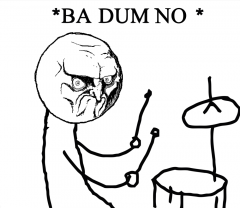thing is, that artical was not even close to what the real quote was about. He didnt compare the whole game to FF6, Just the game mecanics. Kotaku is acting like he lied about saying The whole game is a spiritual succeser to FF6, which again, isnt what he said
I mean, we have to define mechanics. Or Takahashi, specifically, since he didn't really define it as such, except to say Octopath is the evolution of FF6 in the same way Bravely could be considered an evolution of FF5.
And that's it, that's where he left it.
Yes, individual characters with individual playstyles and no discernable "main" character out of an ensemble cast would evoke FF6. It's got those components. That's fine. That's correct. But that's not the whole story, and Kotaku doesn't really treat it as such either.
The Kotaku point was that as of Chapter 3, everybody still felt self-contained. The characters don't interact with each other so much, they're just in the same party. Big part of that is because you can recruit them in any order you like; from a dev perspective this leads to an exponential number of possible character interactions if you aim to catalogue them all, so instead they seem to simply have dropped it.
That character interaction influences a lot of design elements. The FF6 team knew what characters you'd have when since you collected them on kind of a slow drip. For example, most of the combat would have been able to be balanced against a known party till the World of Ruin, and setpieces could be tailored to what seemed best for the group at the time. Octopath seems to be doing that with level gates per chapter, which force you to go grab more party members, but it isn't super picky about which.
Narratively speaking, in FF6 everyone kind of folds in. Open on Terra, who's eventually rescued by the Returners from what amounts to mental slavery. Locke's a Returner, and he just so happens to be in the neighborhood. Get help from Figaro, meet Edgar. Travel through Mt. Kolts on the way to South Figaro, encounter Sabin. It goes on and on. Even when the narrative follows different branches, the predictable party splits let the dev team devote more time to deeper character interactions in those sub-groups since they could narrow down who'd be talking to who and where.
That doesn't turn on its head until the World of Ruin, and you see the character interactions noticeably die down when it does. Until then? You have a whole path through the world laid out for you very linearly, to be honest, with the exception of some branches. Dozens upon dozens of things get influenced by that above and beyond combat.
In their review of Octopath, this is all apparently few and far between at best until Chapter 3.
It kind of strikes me as closer to Wild ARMs, where each of a few main characters has their own short opening narrative which eventually merges into one plot thread when they're all contrived to be in the same place. They usually get that wrapped up by the equivalent of Chapter 1 though, and it seems like Octopath's taking a bit longer to get there.
And while I still haven't had a moment with the second demo, from what I played of the first? All spot on.
Spot on.
Like...yes, it's Kotaku, but they ain't really
wrong here. Their conceit is that Octopath is better taken as its own thing than by comparing it to FF6, and they're mostly talking narratively. If the first three chapters of each character's story play out like they say, I fully agree.
And that ain't any kind of backhand against Octopath - least from me - I just believe there's better comparisons out there.





